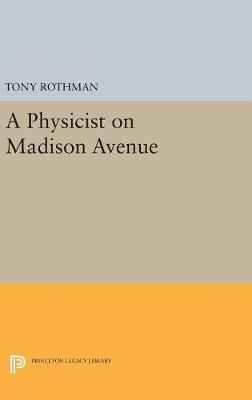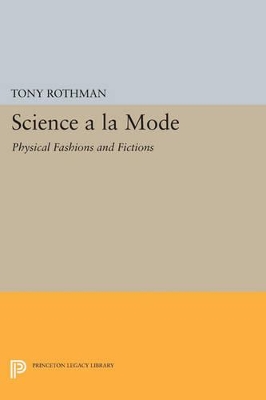Princeton Legacy Library
1 primary work • 2 total works
Book 5012
Whether discussing theories of cosmology, the physics of making a violin, or the impact of magazine covers on potential buyers, physicist and writer Tony Rothman brings the worlds of the scientist and nonscientist closer together, with amusing and enlightening results. These essays, which bear the mark of Rothman's outspoken humor and dislike for pretense, convey essential ideas to general readers on such topics as the future of the universe, the design of particle accelerators, the intelligent use of statistics, and the making of quality musical instruments. At the same time they provide insight into how the mind of a scientist works, not only in research but also in the "real" world of three-piece suits and mass media. The outlook of physicists, according to the author, often puts them at odds with nonscientists--but Rothman never hides his points of disagreement. In his title essay on being a major magazine editor, he recalls using bell curves and elementary statistics in an attempt to convince the circulation department that fluctuations in sales are unavoidable (despite what they thought).
Although Rothman claims that scientists do enjoy playing the role of Faust, the scholar in eternal pursuit of Truth, his essays attest to a scientific interest fully in tune with human concerns. Originally published in 1991. The Princeton Legacy Library uses the latest print-on-demand technology to again make available previously out-of-print books from the distinguished backlist of Princeton University Press. These editions preserve the original texts of these important books while presenting them in durable paperback and hardcover editions. The goal of the Princeton Legacy Library is to vastly increase access to the rich scholarly heritage found in the thousands of books published by Princeton University Press since its founding in 1905.
Although Rothman claims that scientists do enjoy playing the role of Faust, the scholar in eternal pursuit of Truth, his essays attest to a scientific interest fully in tune with human concerns. Originally published in 1991. The Princeton Legacy Library uses the latest print-on-demand technology to again make available previously out-of-print books from the distinguished backlist of Princeton University Press. These editions preserve the original texts of these important books while presenting them in durable paperback and hardcover editions. The goal of the Princeton Legacy Library is to vastly increase access to the rich scholarly heritage found in the thousands of books published by Princeton University Press since its founding in 1905.
These iconoclastic and witty essays are about what happens when scientists jump on band-wagons. Tony Rothman applies creative skepticism to contemporary fashions in science, including the "standard model" Big Bang theory, geodesic domes, the concept of nuclear winter, and sociological applications of the second law of thermodynamics. "Rothman proves himself an excellent communicator...I am grateful to him for he has enlarged my vision, increased my understanding, and made me more aware of the beauty of the patterns and connections of all the world."--Dick Kovan, New Scientist "These six delightful essays address and substantiate the sociological underpinnings of the scientific enterprise...I highly recommend this volume of excellent essays that remind us all of the 'folly of mistaking a paradox for a discovery, a metaphor for a proof, a torrent of verbiage for a spring of capital truth, and oneself for an oracle...'"--Dennis W. Cheek, Science Books & Films Originally published in 1989. The Princeton Legacy Library uses the latest print-on-demand technology to again make available previously out-of-print books from the distinguished backlist of Princeton University Press.
These editions preserve the original texts of these important books while presenting them in durable paperback and hardcover editions. The goal of the Princeton Legacy Library is to vastly increase access to the rich scholarly heritage found in the thousands of books published by Princeton University Press since its founding in 1905.
These editions preserve the original texts of these important books while presenting them in durable paperback and hardcover editions. The goal of the Princeton Legacy Library is to vastly increase access to the rich scholarly heritage found in the thousands of books published by Princeton University Press since its founding in 1905.

